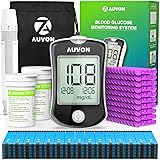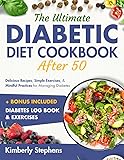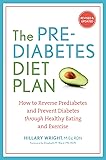
Welcome to our comprehensive guide, How Sugar Affects Your Body and How to Take Control. In a world where sugar is hidden in countless everyday foods, understanding its true impact is more crucial than ever. This article delves into the myriad ways sugar influences your body—from the immediate energy highs and subsequent crashes to its long-term effects on your heart, brain, and overall health. Whether you’re battling persistent sugar cravings or seeking to adopt a healthier lifestyle, you’ll find practical insights and actionable strategies here to help you regain control of your diet. Join us as we explore the truth about sugar and learn how making small, informed changes can lead to a healthier, happier you
In today’s fast-paced world, sugar has become a staple in our diets, sneaking into foods and beverages in ways we often don’t notice. While a little sugar can be a natural part of a balanced diet, too much of it can lead to serious health consequences. In this post How Sugar Affects Your Body and How to Take Control, we’ll dive into how sugar affects your body, explore its hidden dangers, and provide actionable steps to help you take control of your health.
The Sweet Danger of Sugar
Sugar is a ubiquitous part of modern diets. It enhances flavor, improves texture, and even extends shelf life, which is why it’s used in so many processed foods. However, the downside is that too much sugar can be harmful. Research has linked high sugar consumption to a variety of health problems including obesity, diabetes, heart disease, and even issues like tooth decay. Understanding the risks associated with excessive sugar intake is the first step in making healthier dietary choices.
What Exactly Does Sugar Do to Your Body?
When you consume sugar, your body goes through a series of rapid and complex processes. The first impact is felt in your bloodstream. As sugar enters your system, it causes a quick spike in blood glucose levels. This surge triggers your pancreas to produce insulin, a hormone that helps transport sugar from the bloodstream into your cells for energy. While this process is essential for life, constantly bombarding your system with sugar can lead to insulin resistance a condition where your body’s cells no longer respond properly to insulin. Over time, this can pave the way for type 2 diabetes.
Moreover, sugar stimulates the brain’s reward center by releasing dopamine, a neurotransmitter that plays a key role in pleasure and satisfaction. This release of dopamine is what makes sugar so enjoyable and, in many cases, addictive. The immediate high is often followed by a rapid crash, leaving you craving more sugar and creating a cycle that is hard to break.
Last update on 2025-02-10 / Affiliate links / Images from Amazon Product Advertising API, This article contains affiliate links to products on Amazon. As an Amazon Associate, I earn from qualifying purchases. This means that if you click on an affiliate link and make a purchase, I may receive a small commission at no extra cost to you. These commissions help support the content and operations of this website. Thank you for your support!
Your Brain on Sugar
The relationship between your brain and sugar is a significant factor in why sugar is so hard to resist. When you indulge in a sugary treat, your brain releases a surge of dopamine, which creates a temporary feeling of pleasure and reward. This response is similar to the effects seen with other addictive substances, which explains why many people find it challenging to cut back on sugar. Over time, as your body becomes accustomed to these dopamine surges, you may find that you need more sugar to achieve the same level of satisfaction, reinforcing the cycle of sugar dependence.
Quick Sugar Highs … And Sugar Lows
The energy boost that comes from consuming sugar is often short-lived. After the initial spike in blood sugar, your body experiences a sharp decline, leading to what many refer to as a “sugar crash.” This crash can leave you feeling tired, irritable, and even depressed. The fluctuations in energy levels not only affect your mood but can also impair your concentration and overall productivity. Recognizing this pattern can help motivate you to seek more stable and sustained sources of energy from a balanced diet.

The Long-Term Impact of Sugar on Your Health
Sugar and Your Heart
Excess sugar consumption has a profound effect on cardiovascular health. Studies have shown that a diet high in added sugars is closely linked to an increased risk of heart disease. Sugar contributes to the buildup of fat in the arteries, increases blood pressure, and causes inflammation throughout the body. All of these factors combined put extra strain on your heart, eventually leading to conditions such as atherosclerosis (hardening of the arteries) and heart attacks. By reducing your sugar intake, you can help lower your risk and promote a healthier cardiovascular system.
Does Sugar Cause Diabetes?
While sugar itself isn’t the sole cause of diabetes, a high-sugar diet is a significant contributor to obesity and insulin resistance both of which are major risk factors for type 2 diabetes. When your body is constantly dealing with high levels of sugar, your pancreas is forced to produce more insulin, and over time, the cells may stop responding to it effectively. This condition, known as insulin resistance, is a precursor to diabetes. By moderating your sugar intake and maintaining a balanced diet, you can help keep your blood sugar levels in check and reduce your risk of developing diabetes.
Your Pancreas and Sugar
The pancreas is responsible for producing insulin, a hormone critical for regulating blood sugar. Constantly overloading your pancreas with sugar forces it to work overtime, which can eventually impair its function. When the pancreas struggles to keep up with the demand for insulin, blood sugar levels can remain elevated, setting the stage for chronic conditions like diabetes. Protecting your pancreas starts with being mindful of your sugar consumption and opting for nutrient-dense, whole foods that provide steady energy without overburdening your system.
Your Kidneys and Sugar Your kidneys are vital for filtering waste and excess substances from your blood. However, when you consume too much sugar, the kidneys are forced to work harder to eliminate the excess glucose. Over time, this extra workload can damage these essential organs, increasing the risk of kidney disease. By keeping your sugar intake in moderation, you can help relieve the strain on your kidneys and support their long-term health.
Last update on 2025-02-10 / Affiliate links / Images from Amazon Product Advertising API, This article contains affiliate links to products on Amazon. As an Amazon Associate, I earn from qualifying purchases. This means that if you click on an affiliate link and make a purchase, I may receive a small commission at no extra cost to you. These commissions help support the content and operations of this website. Thank you for your support!
Your Body Weight and Sugar
Sugar is often referred to as “empty calories” because it provides energy without essential nutrients. This can lead to weight gain, particularly when consumed in excess. Foods high in sugar tend to be less filling than those rich in protein and fiber, which means you might end up eating more than you need. Moreover, the fat stored around the midsection, often linked to high sugar consumption, is particularly dangerous as it’s associated with an increased risk of metabolic syndrome, heart disease, and other health issues. A mindful approach to sugar consumption can help you maintain a healthier body weight and improve your overall metabolic health.
Sugar and Obesity
The modern obesity epidemic is closely linked to our high-sugar diets. Regular consumption of sugary foods and beverages can lead to a calorie surplus, and because sugar doesn’t provide long-lasting satiety, it often leads to overeating. Reducing your intake of added sugars and focusing on whole foods can be a powerful step toward managing your weight and improving your health.
Sugar and Attention Deficit Hyperactivity Disorder (ADHD)
While the relationship between sugar and ADHD is still under investigation, some research suggests that high sugar intake may exacerbate symptoms in individuals, particularly children. Hyperactivity, mood swings, and difficulties with concentration have all been linked to diets high in sugar. Although sugar is not a direct cause of ADHD, reducing its consumption might help stabilize energy levels and improve focus and behavior in sensitive individuals.
- Count on this book to help you count carbs and live a healthy lifestyle with…
- They make the day-to-day decisions about what to eat, when to exercise, and how to…
- In order to be successful, it is critically important to make those decisions based…
- Carbs and glucose levels go hand in hand when managing all forms of diabetes
- Diabetes & Carb Counting For Dummies teaches you all about carbs and overall healthy…
- The worst thing about diabetes management isn’t the condition itself—it’s the…
- Are you tired of feeling overwhelmed by managing your diabetes after 50? What if you…
- If you’re struggling with fluctuating blood sugar levels, meal planning confusion,…
- Many people feel lost when it comes to balancing nutrition, fitness, and stress…
- In this book, you’ll discover an all-in-one guide to diabetes management that…
- A practical, empowering guide to managing and reversing prediabetes through diet and…
- Increasingly diagnosed by doctors, prediabetes is a condition in which blood sugar…
- While diabetes cannot be cured, prediabetes can be reversed, so it is critical to…
- In straightforward, jargon-free language, The Prediabetes Diet Plan explains insulin…
- With sections on meal planning, grocery shopping, dining out, supplements, and…
Last update on 2025-02-10 / Affiliate links / Images from Amazon Product Advertising API, This article contains affiliate links to products on Amazon. As an Amazon Associate, I earn from qualifying purchases. This means that if you click on an affiliate link and make a purchase, I may receive a small commission at no extra cost to you. These commissions help support the content and operations of this website. Thank you for your support!
Where Does Your Added Sugar Come From?
Sugar is hidden in many foods, often under unsuspecting names. It’s not just found in sweets or desserts; sugar is added to processed foods like flavored yogurts, sauces, cereals, and even bread. This hidden sugar can accumulate quickly, leading to a much higher daily intake than you might expect. Learning to read nutrition labels and becoming familiar with the various names of sugar such as high-fructose corn syrup, maltose, and dextrose can empower you to make healthier choices. Opting for whole, unprocessed foods is one of the best ways to naturally reduce your sugar consumption.
The recommended limits for added sugar are surprisingly low compared to what many people consume daily. For instance, the American Heart Association suggests that women should have no more than 6 teaspoons (25 grams) of added sugar per day, while men should aim for no more than 9 teaspoons (38 grams). Unfortunately, the average diet far exceeds these guidelines, contributing to various health issues. By being aware of these limits and gradually cutting back, you can protect your health without feeling deprived.
Last update on 2025-02-10 / Affiliate links / Images from Amazon Product Advertising API, This article contains affiliate links to products on Amazon. As an Amazon Associate, I earn from qualifying purchases. This means that if you click on an affiliate link and make a purchase, I may receive a small commission at no extra cost to you. These commissions help support the content and operations of this website. Thank you for your support!
Breaking Free from Sugar Dependence
Can You Really Be Hooked on Sugar?
Many experts now consider sugar to have addictive properties similar to those of certain drugs. The pleasure and reward centers in your brain respond to sugar by releasing dopamine, which can create a cycle of cravings and overconsumption. Acknowledging that sugar can be addictive is a critical step in taking control of your diet. Once you recognize this dependency, you can begin to implement strategies to reduce your intake and develop healthier eating habits.
Do Sugar Detox Diets Work?
There is a lot of buzz around sugar detox diets, and while the effectiveness of these diets can vary, many people find that reducing or eliminating sugar for a short period helps reset their taste buds and curb cravings. The key is to approach a detox with a sustainable mindset. Instead of drastic, short-term eliminations, consider a gradual reduction in sugar intake. This approach allows your body and mind to adjust over time, making it easier to maintain a lower-sugar lifestyle in the long run.
Kicking the Sugar Habit
Breaking the habit of consuming too much sugar doesn’t have to be overwhelming. Start by identifying when and where you consume the most sugar whether it’s in your morning coffee, afternoon snack, or late-night treats and explore healthier alternatives. Simple strategies such as substituting sugary snacks with fruits, incorporating more fiber-rich foods into your meals, and staying hydrated can make a big difference. Remember, the goal is not to eliminate all sugar but to create a balanced approach that supports long-term health.

How to Protect Yourself and Make Healthier Choices
Scout Out Hidden Sugar
Sugar can be a stealthy component in many foods. Beyond obvious sources like candy and soda, sugar is often present in unexpected items like salad dressings, bread, and even savory sauces. Familiarizing yourself with the various terms used for sugar on ingredient labels is essential. Look out for words like “syrup,” “nectar,” “maltose,” and “dextrose.” The more aware you are of hidden sugars, the easier it becomes to reduce your overall intake.
Choose Good-for-You Sweets
When cravings hit, opt for sweets that come with additional nutritional benefits. Whole fruits, for example, offer natural sugars along with fiber, vitamins, and minerals that help slow down the absorption of sugar into your bloodstream. Dark chocolate with a high cocoa content is another excellent alternative that provides antioxidants along with a touch of sweetness. These choices allow you to satisfy your sweet tooth while also nourishing your body.
Simple Sugar Swaps
Small changes can lead to significant improvements in your health. Consider these simple sugar swaps to help reduce your overall intake:
- Beverages: Replace soda and sugary drinks with water, herbal teas, or sparkling water infused with slices of citrus or berries.
- Dairy: Swap flavored yogurts, which often contain added sugars, for plain yogurt. Enhance the flavor with a handful of fresh fruit or a drizzle of honey.
- Snacks: Choose whole fruits, nuts, or vegetables with hummus over processed snacks that are high in sugar.
- Baking: When baking, experiment with reducing the amount of sugar in recipes. Often, you can cut the sugar by a third without compromising on taste.
Workout to Eliminate Sugar
Regular physical activity is a fantastic way to combat the negative effects of sugar. Exercise not only helps to burn off excess calories but also improves your body’s insulin sensitivity, allowing you to process sugars more efficiently. Incorporate activities you enjoy whether it’s brisk walking, cycling, dancing, or strength training into your daily routine. This not only supports your physical health but can also help regulate your mood and reduce cravings for sugary foods.
It’s important to remember that the aim isn’t to completely eliminate sugar from your diet. A moderate amount of sugar, especially from natural sources like fruits, is perfectly acceptable and can even be part of a balanced diet. The key is to be mindful of how much added sugar you consume. Balancing your meals with protein, healthy fats, and fiber will help stabilize your blood sugar levels and prevent the dramatic highs and lows associated with refined sugar. This balanced approach ensures that you enjoy life’s little indulgences without compromising your overall health.

Taking Action: A Healthier, Happier Future
The journey toward reducing sugar in your diet doesn’t happen overnight, but every small step counts. Start by becoming more conscious of the hidden sugars in your food, setting realistic goals, and gradually integrating healthier alternatives into your daily routine. Educate yourself about the impacts of sugar on your body, and use this knowledge as motivation to make better choices. Remember, change is a process, and every positive step brings you closer to improved health, more energy, and a better quality of life.
By taking control of your sugar intake, you’re not only protecting your heart, pancreas, kidneys, and overall metabolic health—you’re also paving the way for a happier, more energetic future. Embrace the challenge, celebrate your successes, and know that every positive change you make today is an investment in a healthier tomorrow.
Start your journey today, and let your future self thank you for the choices you make now.

Disclosure
The information provided in this article is intended for general informational and educational purposes only. It is not intended as a substitute for professional medical advice, diagnosis, or treatment. Always seek the advice of your physician or another qualified health provider with any questions you may have regarding a medical condition or before making any changes to your diet or lifestyle. The content reflects the views of the author and does not replace personalized advice from a certified health professional. Use this information at your own risk.















